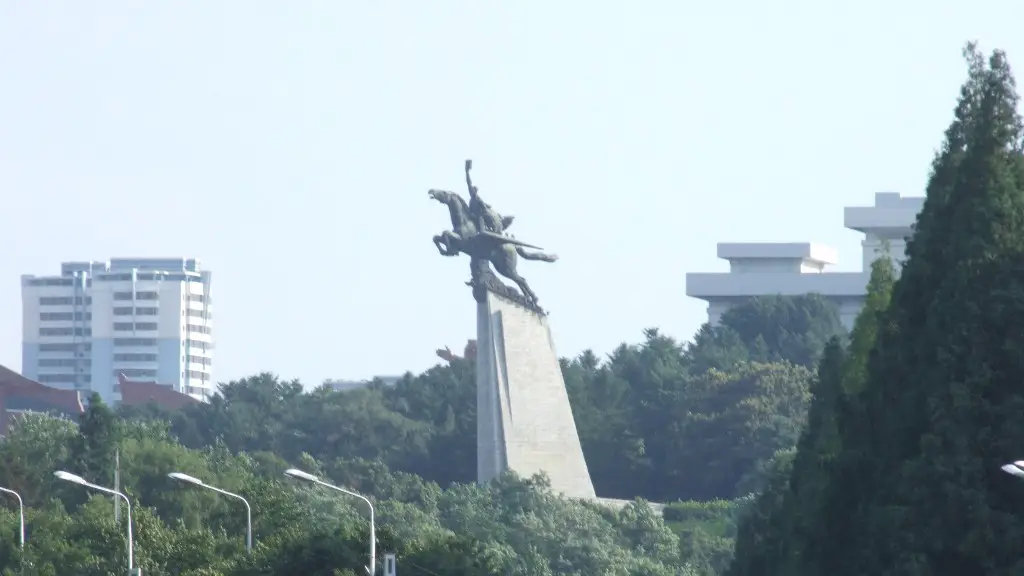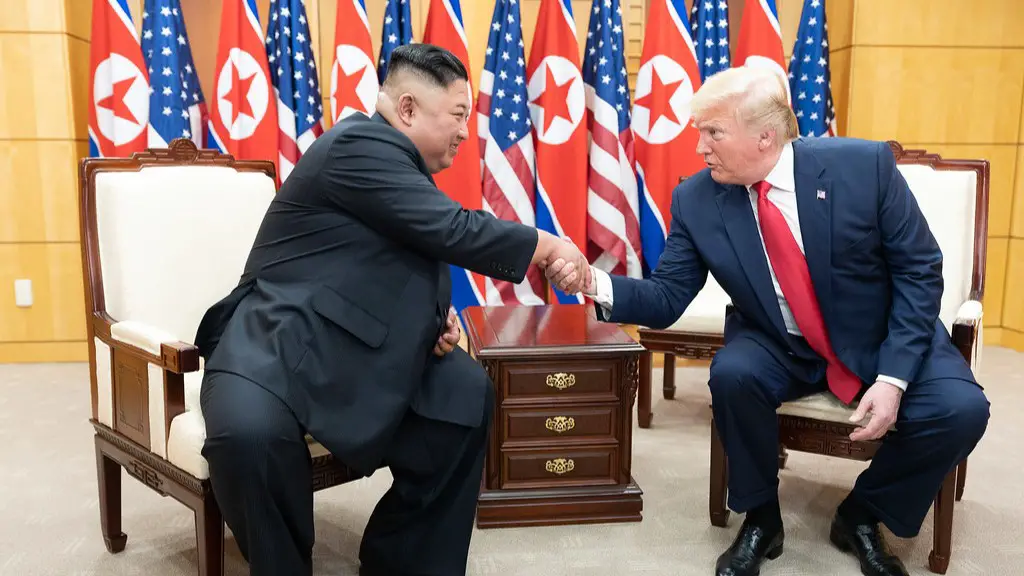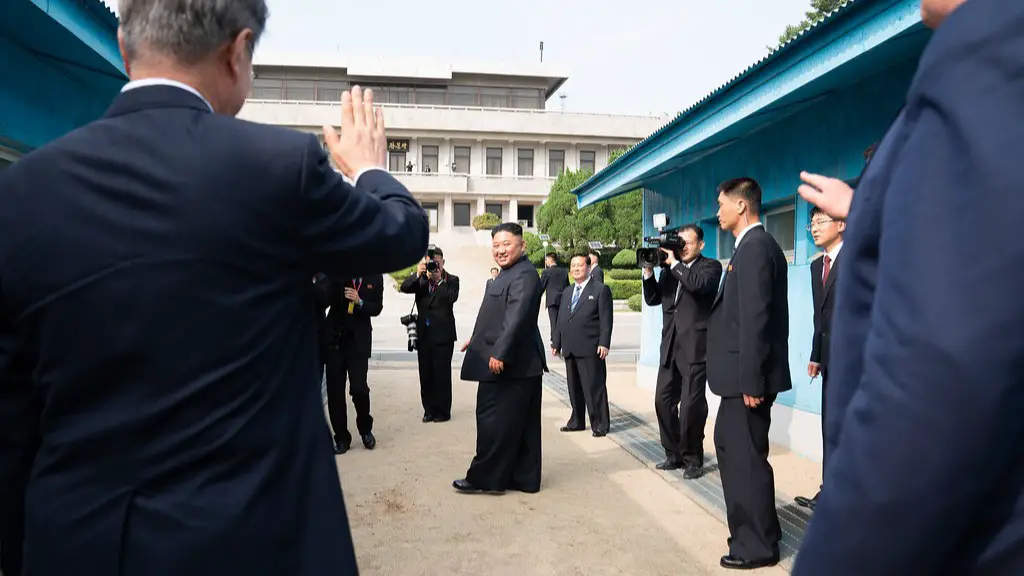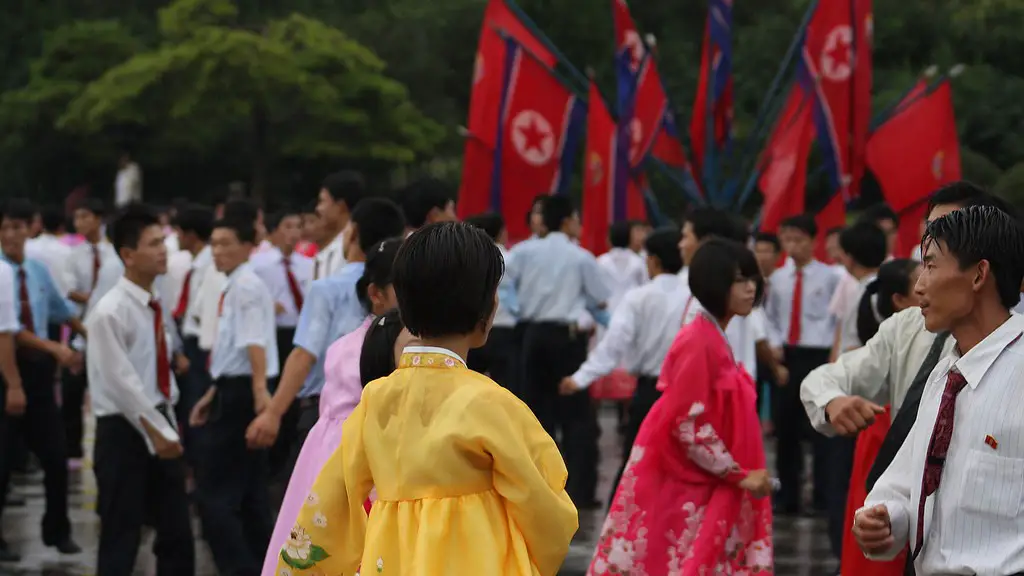Will North Korea Bomb Guam
Tensions between North Korea and Guam have been strained since the announcement by North Korea of their missile launch plans in August 2017. The announcement has prompted some US officials to call for a pre-emptive military strike in response, while other experts believe that the best route to take is to negotiate and take a diplomatic approach to defuse the situation.
It’s no secret that North Korea has threatened to attack the US Pacific territory in the past, and the current tensions have raised the stakes and the potential for hostilities to break out between the two countries. North Korean leader Kim Jong Un has threatened to fire missiles at Guam a number of times in the past couple of years and has warned of a “fire-containing storm” if the US does not end its military exercises with South Korea.
The potential for a North Korean missile to actually hit Guam is quite low, given the state of the North Korean missile technology, the inaccuracy of their weapons, and the US and Japanese forces in the region that could potentially intercept the missiles. The US has a military base and naval station in Guam and is likely to respond quickly to any attack by North Korea. In addition, the US Missile Defense Agency is conducting tests to evaluate their ability to shoot down incoming ballistic missiles.
Despite the possibility of a successful strike on Guam being low, the threat of an attack remains real and the consequences could be severe. Guam is considered a US territory and would be treated as a US state if attacked by North Korea, meaning any action taken against the island would be considered an act of aggression against the US. The potential loss of human life and the threat of a regional conflict is a very real possibility in the event of an attack on Guam.
Experts have warned that North Korea may use the threat of a missile attack on Guam as a way to gain leverage and apply political pressure to the US. In this context, the US is in a difficult spot as there is no easy way out of the current stand-off without risking a war. Attempting to negotiate a peaceful resolution is probably the best option, although it may be a long and difficult process. Yet, despite the complexity of the situation, it is important to remember that war is always a last resort and should only be considered when absolutely necessary.
It is clear that a potential attack on Guam by North Korea is a very real threat and one that must be taken seriously. Although the probability of such an attack is low, the potential consequences are too great to ignore and must be evaluated carefully. Diplomacy, patience, and a willingness to listen to the other side’s perspective is the best way to ensure that this crisis is resolved peacefully.
Negotiations
In order to avert a confrontation between the two countries, negotiations between North Korea and the US are a must. While North Korea has rarely negotiated in the past, it is essential for both sides to be willing to talk and find a way to end the current stand-off. Ideally, negotiations should be aimed at a peaceful resolution of the crisis, through the suspension of North Korea’s missile tests and, more importantly, the halt of US military exercises with South Korea as well as the dismantling of the US missile defense system in the region.
The obstacles are, however, considerable. Most notably, North Korea has expressed its intent to develop a nuclear-armed missile capable of hitting the US mainland, meaning that any negotiations must take place in the shadows of this military development. Moreover, the US has been unwilling to accept North Korea’s demand to end US military exercises with South Korea and the dismantling of the US missile defense system, which has further complicates the situation.
Despite these obstacles, experts have argued that diplomacy is the best way to solve the crisis, as it allows both sides to come to an agreement that can be accepted by all and is not reliant on the threat of military action. In order for negotiations to be successful, however, both sides must be willing to compromise and must be open to dialogue and discussion.
Ultimately, the only way to prevent a confrontation between North Korea and the US is through diplomatic negotiations. While the obstacles to a successful resolution of the crisis remain considerable, it is essential that both countries maintain an open and constructive dialogue and are willing to put the needs of the region and its people before their own short-term interests.
Impacts on Guam
The effects of a potential North Korean attack on Guam would be tremendous and catastrophic. As a US territory, Guam would be at the front line of North Korean aggression, and its people would face the brunt of any retaliation from the US. In such an event, the island and its people would not only face the trauma and destruction from a potential attack, but also the potential backlash from the US. The territory would also be at risk of facing economic sanctions from the US, which could have a devastating effect on the local economy.
Moreover, Guam’s population is largely composed of ethnic Chamorro people, many of whom are US citizens. A potential attack on Guam would put the lives of these people at risk, and any retaliation from the US would put these people in an even more precarious situation. The potential destruction of the island and its people is a real possibility and must be taken into consideration before any actions are taken.
In addition, a strike on Guam could lead to a wider regional conflict, as the US has pledged to protect its interests in the region. Any attack on Guam would likely prompt a strong response from the US and its allies, including Japan and South Korea. This could lead to a war with North Korea, as well as a potential war with China, which has been a major ally of North Korea’s in recent years.
While the probability of a North Korean strike on Guam is low, the potential impacts are immense and must be considered carefully. Guam and its people would bear the brunt of any attack and the potential for a wider regional conflict must be taken into account before any military action is taken.
Public Reaction
The potential for an attack on Guam has elicited strong reactions from both the US and local citizens on the island. On the one hand, US citizens are concerned over the potential loss of life and destruction that could result from such an attack. On the other hand, local residents are concerned over the potential economic and political implications of a US military action or attack on Guam. This has led to a sense of unease and uncertainty on the island, with some residents expressing their worry over the potential consequences of an attack on Guam.
In the US, public opinion on the crisis has been divided. While many citizens are in favour of a diplomatic solution to the crisis, others are advocating for a pre-emptive military strike on North Korea. This has led to a contentious debate, with both sides vehemently defending their positions. Ultimately, however, it is important to remember that a potential attack on Guam is a real threat and that such a scenario must be taken seriously and evaluated carefully before any action is taken.
In addition, it is important to consider the potential impacts of a confrontation on the region, as any potential conflict has the potential to escalate into a wider regional conflict. This is particularly true if the US and its allies take military action against North Korea, as the risk of a retaliatory attack or even a war is real. Ultimately, it is important to remember that war is always a last resort, and that any solution to the crisis should be aimed at peacefully settling the current stand-off.
United Nations
The United Nations has a key role to play in resolving the current stand-off between the US and North Korea. In particular, the UN Security Council must work towards a diplomatic solution to the crisis. This can include sanctions, as well as international pressure on North Korea to halt its missile tests and accept a peaceful solution to the crisis. It is also essential that the UN Security Council works to ensure that all parties to the conflict are held accountable for any potential violations of international law.
The UN Security Council can also urge both sides to take steps towards negotiations and diplomacy. This could include a joint statement from the US and North Korea affirming their commitment to a peaceful resolution to the crisis. The UN can also help to facilitate this process, providing the platform for both sides to come to the table and negotiate a peaceful resolution.
Ultimately, the role of the United Nations is essential if a peaceful resolution to the current stand-off between the US and North Korea is to be achieved. The Security Council must work to ensure that all parties involved abide by international law and take steps towards dialogue and negotiations. Only then will the current crisis be resolved peacefully.
Media Coverage
The potential for an attack on Guam has been widely reported in the media, with a variety of outlets providing coverage of the crisis. This coverage has offered valuable insights into the crisis and its potential implications, with news outlets from around the world reporting on the stand-off. This has provided an important platform for the US and North Korea to express their positions on the issue, as well as offering a space for international voices to be heard.
In addition, the media coverage of the crisis has been instrumental in raising public awareness of the situation. This has allowed citizens in both the US and North Korea to gain a better understanding of the potential implications of a confrontation, as well as providing an opportunity for citizens to voice their opinions on the issue.
Although media coverage of the crisis has been invaluable, it has also been prone to misinformation, exaggeration, and sensationalism. As such, it is essential that citizens remain vigilant and critically analyse any claims made by the media. Ultimately, it is important to remember that the media has an important role to play in informing the public, but that it is essential for readers to take all reports about the crisis with a grain of salt.
In conclusion, the potential for a North Korean attack on Guam is a real threat and one that must be taken seriously. Although the probability of such an attack is low, the potential consequences are too great to ignore and must be evaluated carefully. Diplomacy, patience, and a willingness to listen to the other side’s perspective is the best way to ensure that this crisis is resolved peacefully.





